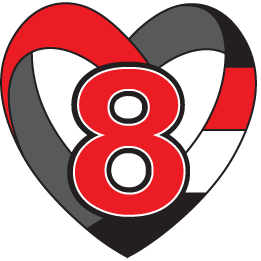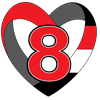
Healthy Eating 101
What We Eat Makes Up Our Bodies And Cells
When we eat unhealthy junk foods:
- We have less energy, poor concentration and feel tired
- We can develop nutrient deficiencies → prevent proper development
- We have decreased performance in sports and physical activity
- We don't look and feel as healthy (under or overweight, poor skin health)
- We feel more irritable and moody
- We get sick more often
Eating a clean, healthy diet:
- Improves our energy levels
- Improves learning, mental health and cognition
- Promotes healthy weight
- Decreases depression, stress and anxiety
- Can improve our sport and athletic performance
- Improves sleep, mood, self-esteem and self-confidence
- Improves immunity - we don't get as sick or sick as often
Basic Components of Nutrition
MACRONUTRIENTS
Are nutrients our body needs in large amounts. Includes carbs, fats, and proteins - the three basic components of every diet.
FATS
Makes up cell membranes, sex hormones, cholesterol, and more than half of your brain tissue. It helps us absorb fat-soluble vitamins, cushions organs, and stores energy.
CARBOHYDRATES
Gives our bodies fuel and energy. Important for brain function.
PROTEIN
The building blocks of our body. Makes up our muscles, hair, nails, eyes, skin, and organs.
MICRONUTRIENTS
Are vitamins and minerals needed for proper functioning of all your body's systems.
Vitamin A, B, C, D, E, K, Sodium, Potassium, Magnesium, Calcium, Zinc, Iron, Manganese etc.
WATER
The primary component of all bodily fluids (blood, lymphatic, sweat, urine, etc.) Transportation of nutrients needed for proper digestion helps to eliminate waste/toxins.
Makes up 60% of our body, 70% of our brain, 80% of our blood and 20% of our bones.
HEALTHY FATS (OMEGA 3)
- Coconut Oil
- Olive Oil
- Chia Seeds, Flax Seeds
- Nuts (i.e. Almonds, Walnuts)
- Avocados
- Seeds (i.e. Pumpkin, Sunflower)
- Wild Salmon
- Eggs
- Grass-Fed Butter

HEALTHY PROTEINS
- Chicken Breast, Turkey
- Lean Beef
- Tuna, Shrimp, Wild Salmon
- White Fish Fillet (Basa, Cod)
- Edamame
- Egg, Egg Whites
- Tofu, Tempeh
- Beans, Lentils, Peas
- Greek Yogurt
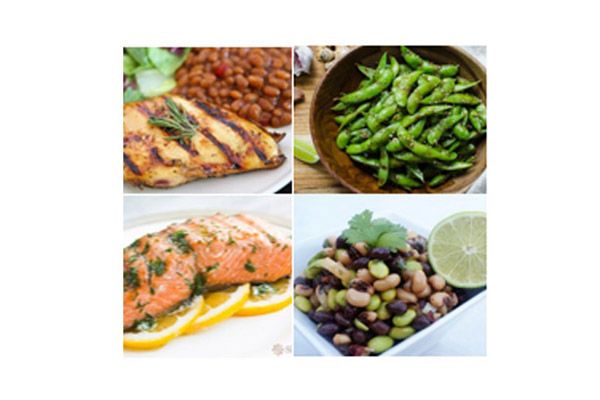
HEALTHY CARBOHYDRATES
- Brown Rice, Wild Rice
- Oats
- Ezekiel or Whole Grain Bread
- Quinoa
- Couscous, Barley Squash
- Fruit, Vegetables
- Beans / Peas
- Honey, Maple Syrup
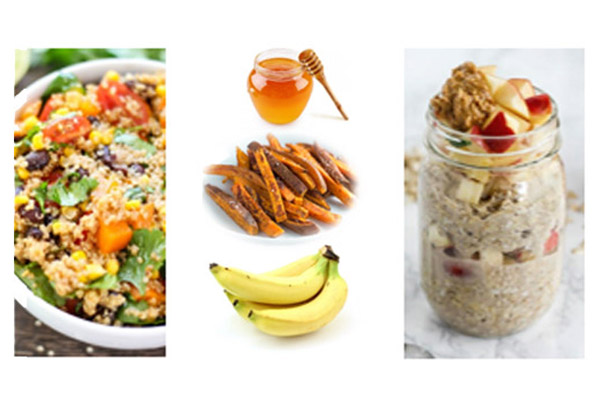
Important Vitamins and minerals
IRON (energy, combat fatigue, builds red blood cells)
Beef, chicken, salmon, tuna, fish, oats, quinoa, spinach, beans, lentils, kale
CALCIUM (maintains healthy bones and teeth)
Kale, milk, almond milk, yogurt, broccoli, oatmeal
MAGNESIUM (anti-inflammatory, muscle contraction, fights depression, promotes relaxation, sleep quality, boosts performance, prevents migraines)
Spinach, swiss chard, dark chocolate, pumpkin seeds, almonds, black beans, avocado
VITAMIN C (skin health, builds immune system, wound healing, bone health, helps the body absorb iron)
Bell peppers, guava, strawberries, kiwi, oranges, lemon, limes, papaya
So now that you know some of the foods you should include and exclude from your diet, the question is, HOW MUCH? Here are basic guidelines of how much you should be eating daily:
Fresh Fruits and Vegetables
1-2 fruits per day, 4+ servings of vegetables each day
Variety is important- dark green, deep orange, citrus
Protein
3 servings per day
One serving = size of your palm (~4 oz.)
A good guideline is 1.5g of protein per kg of body weight
Whole Grains
3-4 servings per day
One serving = size of your fist
Healthy Fats
5 servings a day
One serving = 1 tbsp. of oil, a handful of nuts/seeds, ¼ avocado
Water
6-8 cups a day
While eating too much (especially unhealthy foods) can negatively affect your health, eating too little can be just as detrimental.
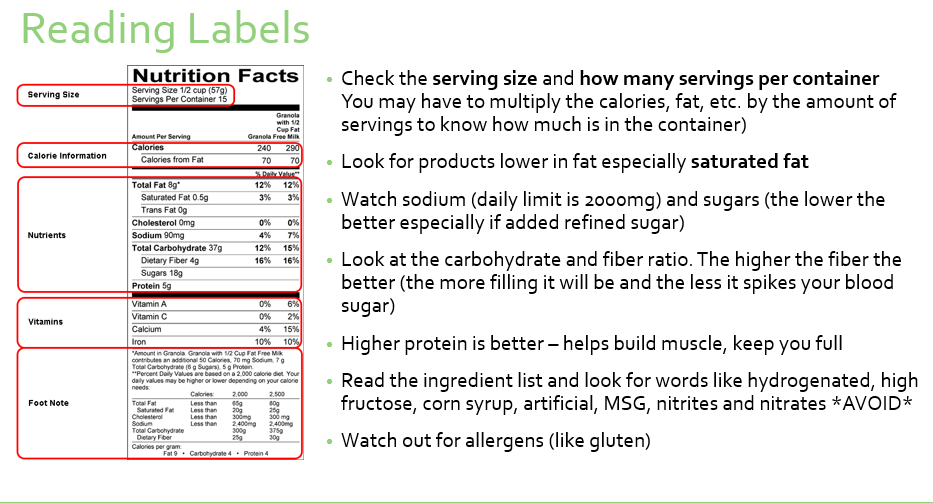
Unhealthy vs. Healthy plates of food
- Too Little
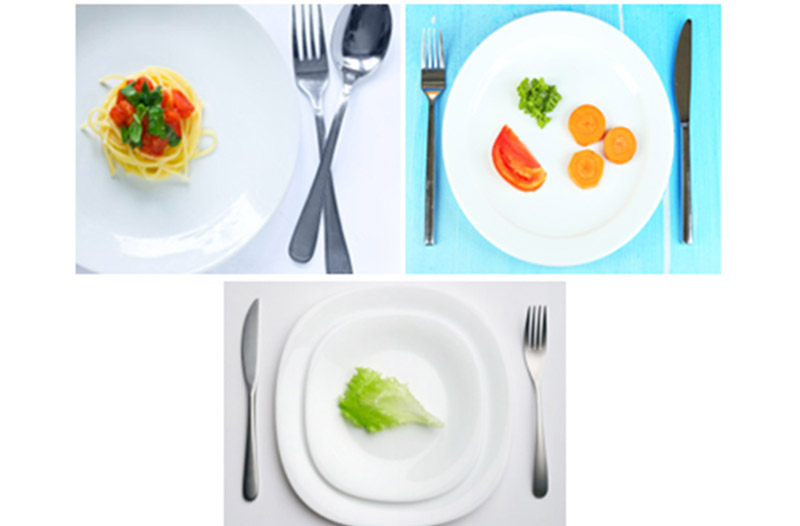
- Too Much/Unhealthy Foods
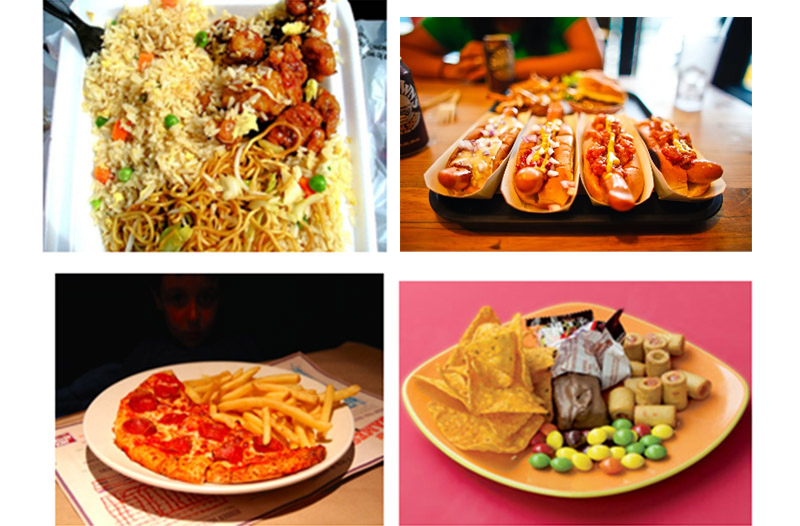
Unhealthy attempts to "lose weight" or "diet" include starvation, malnutrition, and skipping meals.
Why they don't work:
They promote quick weight loss - loss of muscle and water
They place strong restrictions on food selections
No attempts are made to change eating habits permanently
Promotes unhealthy & obsessive behaviours, anxiety, and slows metabolism
You don't have to eat less
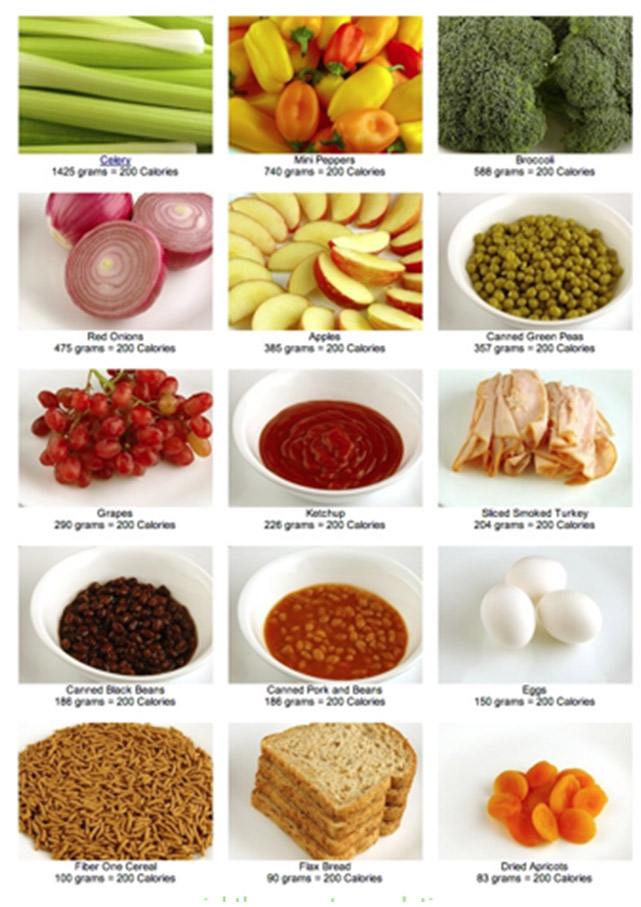
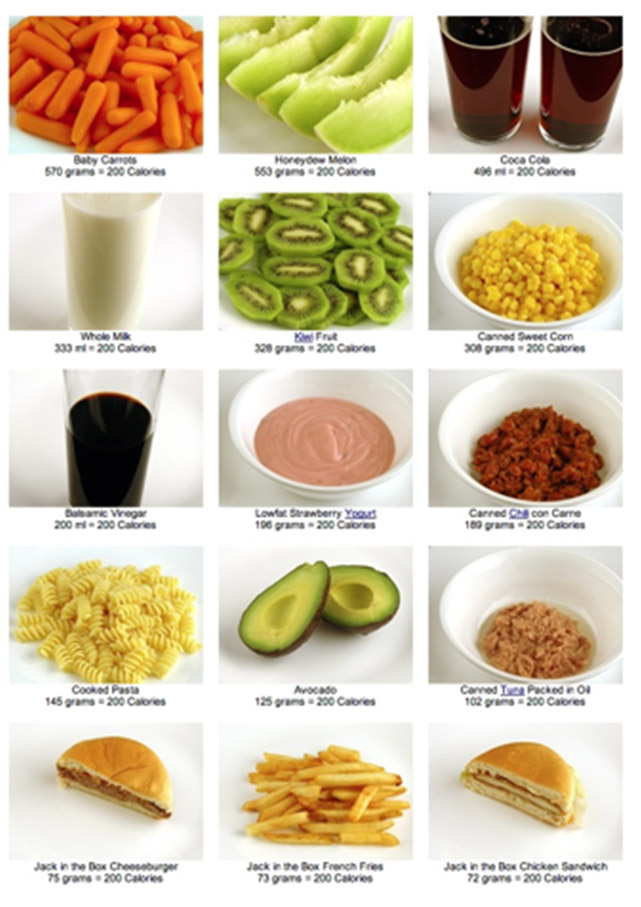
How can we make our diet healthier?
- Less 'BAD' fats
More Omega Fats (avocados, chia/flax/hemp seeds, olive oil, nuts & seeds, salmon, cold water fish) - Less red meat, lunch meats, bacon, ham etc.
More plant sources (nuts, seeds, beans) or fresh fish and poultry - Consume less milk and milk products
Switch to non-dairy forms such as almond, coconut, cashew, rice milks - Less fried foods
- Less processed foods (chips, cookies, crackers)
Eat more legumes and whole grains & higher fibre foods - Switch from white/refined sugars to wholesome sweeteners (honey, maple syrup, stevia)
- Drink more water ⇒ Hydration is key!
- Eat more fresh fruits and vegetables
- Get more regular exercise
How We Can Make Junk Food Healthier
Burgers
Patty: lean beef, turkey, chicken, veggie burger
Bun: thin whole wheat, lettuce wrapped
Toppings: fresh veggies, mustard, little ketchup, avocado
Avoid: mayo (adds 100-200+ calories), processed cheese
Fries
Homemade baked, not fried
Replace potatoes with sweet potatoes, carrots, acorn or butternut squash, turnips, beets
Pizza
Thin crust, half the cheese, lots of vegetable toppings
Try using pita or tortilla at home
Limit pepperoni, bacon, sausage
Healthy Substitutions
- White Rice → Quinoa or Brown Rice
- White Toast → Whole Grain Bread
- Sour Cream → Greek Yogurt
- Mashed Potatoes → ½ Potatoes + ½ Turnips or Cauliflower
- Ground Beef → Ground Turkey
- Mayo or butter → Mashed Avocado
- White pasta → Spelt, Whole Wheat, Brown Rice or Quinoa Pasta
- Pasta → Spaghetti Squash, Zucchini Noodles
- Cow's Milk/Cream → Non-Dairy Milk (Almond, Coconut)
- Sugar → Raw Honey, Maple Syrup, Stevia, Coconut Sugar
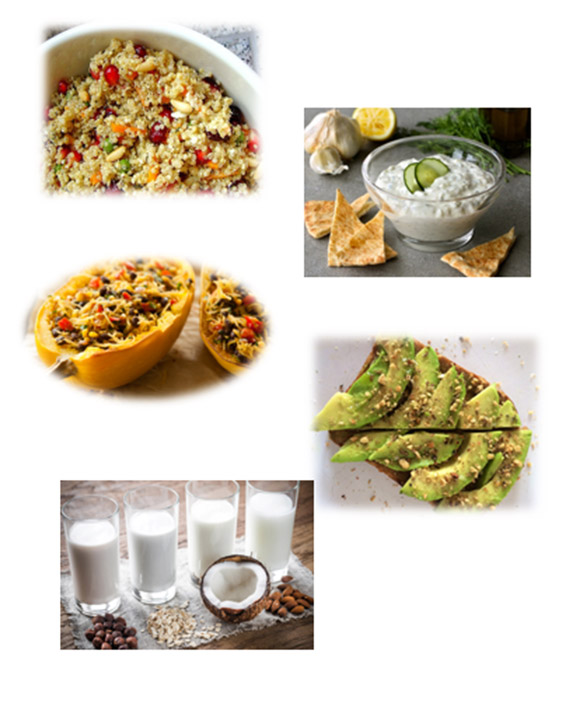

Don't see what you're looking for? Send us an email!
©Copyright 2024 Cam’s Kids powered by Kids Help Phone
Not-for-Profit Organization. B/N: 921508-5
Thanks for visiting Cam's Kids. Please remember...
Cam's Kids is not a service provider.
If you are in crisis, please call 911 or go to your nearest emergency department. For free, confidential counselling, contact Good2Talk or Kids Help Phone.
Post-secondary students: find your local crisis resource here.
